As Japan’s workers hire experts to help them resign, will its toxic work culture finally change?
In a country where quitting a job can feel like an uphill battle, there is a ready market for resignation agencies. CNA’s Insight looks at Japan’s efforts to reform its work culture and how young people could catalyse change.
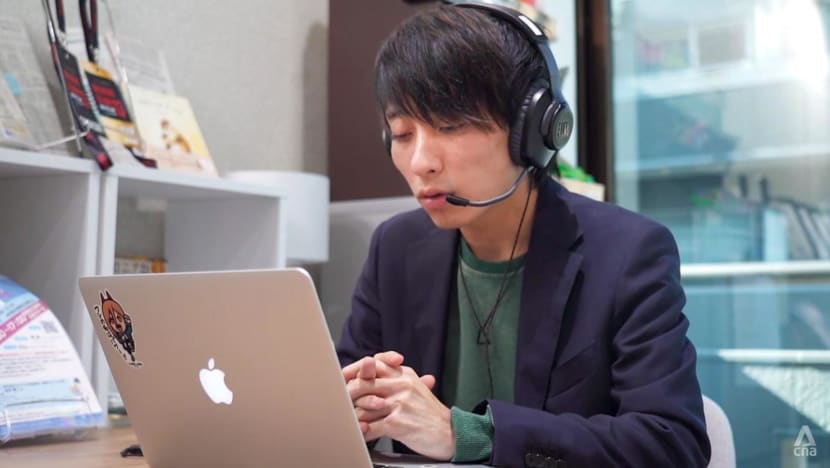
Resignation consultant Yuujin Watanabe’s job scope includes contacting workplaces directly to inform them about his clients’ intention to resign.

This audio is generated by an AI tool.
TOKYO: Yuujin Watanabe, 24, has a rather unusual occupation as a resignation consultant.
Working for Momuri (meaning “enough already”), a resignation agency founded in 2022, he helps clients quit their jobs when they feel too intimidated to do so themselves.
For many Japanese workers, resigning is not as simple as filing a letter of notice. Owing to fears of a backlash from bosses, disapproval from colleagues and rigid work norms, leaving a job can be stressful and, sometimes, nearly impossible.
Watanabe has seen how difficult it can be. Some employees are badgered into staying; others find their resignation letters ignored or torn up.
“When contacting companies about resignations, we do sometimes receive harsh words from certain employers,” he said, adding that these comments can border on verbal abuse. “In those situations, some people feel mentally affected or even discouraged.”
WATCH: Inside a Japanese ‘resignation agency’ — Why Japan’s workers need help quitting their jobs (4:28)
The rise of resignation agencies, beginning around 2017, reveals a darker side of Japan’s work culture: Its rigidly hierarchical workplaces often give bosses disproportionate power over employees; long hours and unpaid overtime are common, even expected.
Taking time off can also be tough. On average, private-sector workers take only 62 per cent of their leave, a 2023 government survey showed.
Despite government reforms in recent years, change remains slow. So business continues to boom for Japan’s resignation agencies, which have seen a post-pandemic surge in demand.
“At the start we received only a few dozen requests per month. But now we’re getting over 1,800 requests per month,” said Momuri’s founder, Shinji Tanimoto, 35.
Beyond taking a physical and emotional toll on workers, the country’s work culture has contributed to its demographic crisis. Overwork is often cited as a reason for Japan’s declining birth rates, with workers left with little time for family life.
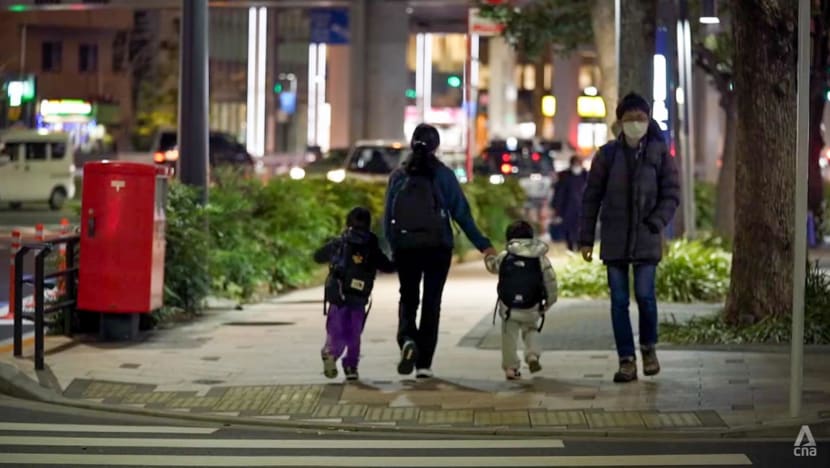
Japan’s labour shortage last year was estimated at 251,000 people, a number expected to swell to 11 million by 2040, according to independent think-tank Recruit Works Institute.
While some companies have begun to embrace change, many firms have not. “That’s why I think some people still end up using resignation agency services,” said Tanimoto.
With a shrinking workforce and growing economic pressures, can Japan break free from its toxic work culture? The programme Insight explores why change is proving difficult and what might be key to achieving it.
DEATH BY OVERWORK
Japan’s work ethic is rooted in the post-war economic boom, where hard work was seen as the key to national and personal success. And it solidified into a culture where employees were expected to dedicate themselves entirely to their companies.
WATCH: Japan wants to quit its toxic work culture — But why isn’t it working? (44:39)
This mindset, known as “messhi hoko”, or self-sacrifice for the public good, became ingrained in Japan’s corporate structure such that many firms still practise a membership-based employment system.
They recruit fresh graduates in bulk to be salarymen, assigning and rotating jobs as deemed necessary instead of hiring people for specific roles.
“This means employment is almost like a blank agreement, where the company holds significant authority over personnel decisions,” said Work Style Innovation Research Institute director Ryo Nitta.
“Because of this system, leaving a company that’s supported an employee is often seen as a betrayal.”
“On the other hand, those willing to work long hours and do whatever it takes are valued. They tend to be promoted, become managers, (then) hire others with similar values.”
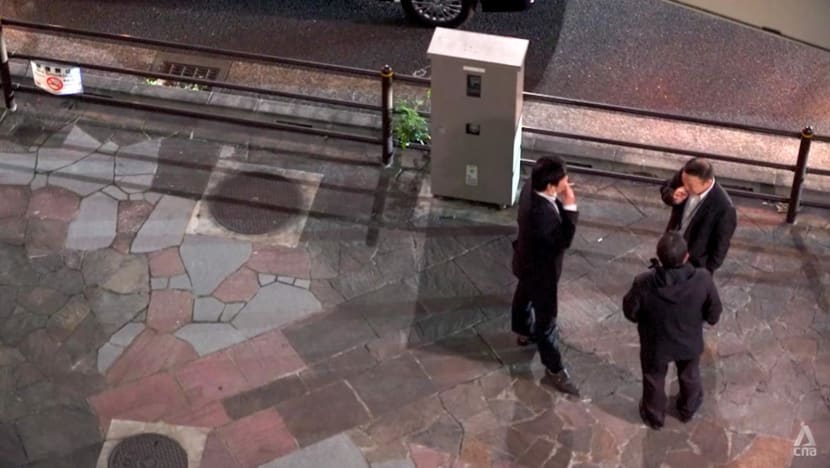
Designer and art director “Kotetsu Genda” (not his real name) knows Japan’s culture of overwork all too well. The 36-year-old entered the workforce around 2014, when the country’s full-timers clocked, on average, 173 hours of annual overtime — a record then.
At his firm then, his colleagues regularly stayed in the office until the last train. In his first week or so, his boss even suggested he cycle to work so he need not stop to catch the last train.
During peak season, his working day stretched from 8am or 9 am to around 2am or 3 am. “To give you a concrete example, I had a sleeping bag and stayed over … in the office for a week,” he said.
Despite the gruelling hours, he was underpaid and never compensated for overtime. The firm was a “black company”, a term for businesses in Japan with excessive working hours, low pay and disregard for labour laws.
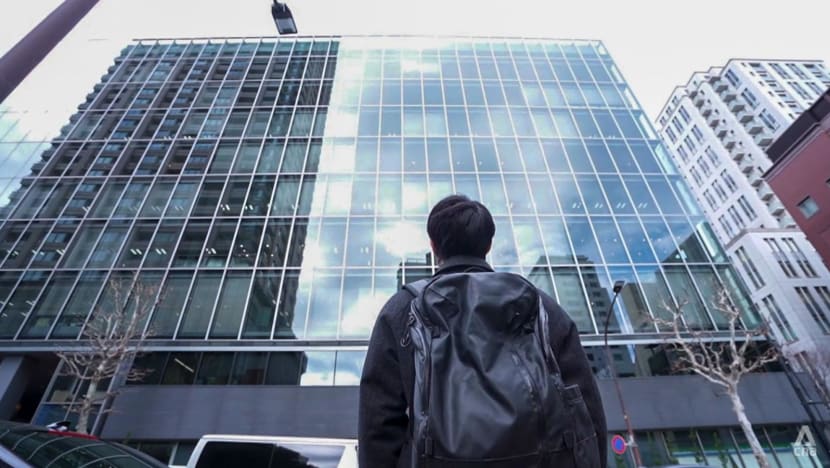
For some employees, Japan’s work culture can even be fatal. There is also a term for it: “karoshi”, or death by overwork.
One high-profile case was Miwa Sado, a journalist at NHK, Japan’s national broadcaster. She died of heart failure in 2013 at age 31, after clocking up 159 hours of overtime in one month.
Although NHK later introduced reforms requiring, for example, employees to get permission from their managers to work after 10pm or on holidays, another reporter died from overwork in 2019.
The company told Insight health consultations are now mandatory for its overworked employees.
As for Genda, he recently joined an advertising firm with better work-life balance. He describes his former reality as that of a “shachiku”, a slang term meaning “company livestock” or “wage slave”.
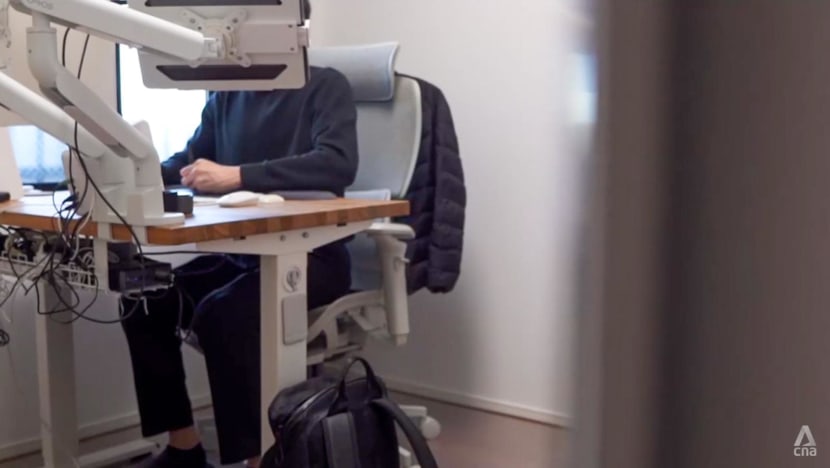
“The difference between a salaryman and a ‘shachiku’ isn’t so clear-cut for me,” he said pointedly.
WHY WORKERS TEND TO STAY ON, QUIETLY
To foster healthier work attitudes, the government implemented the Work Style Reform Law in phases beginning in 2019, moving to cap overtime at 45 hours per month, but with some exceptions allowing up to 100 hours.
Other reforms include closing wage gaps and encouraging more flexible work arrangements.
Workers are not necessarily insisting on their rights, however. In the tradition of “shushin koyo”, or lifetime employment, many of them stay with their employer for stable wages, promotions based on seniority and other benefits.
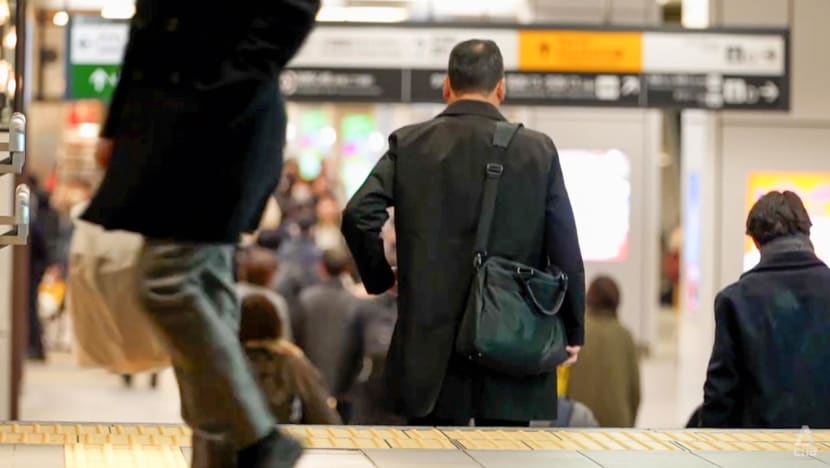
Many of them may also fail to gain new skills required for job mobility, said Yuji Kobayashi, principal researcher at private think-tank Persol Research and Consulting. “As students, they study hard. After they graduate, they don’t study at all.”
Job security concerns may then hold workers back from changing jobs, even as cultural factors discourage them from speaking up, especially if they risk crossing their seniors.
“If we change the way we’re doing things,” said Hiroshi Ono, professor of human resource management at Hitotsubashi University Business School, “this could … send a signal to the predecessors and their earlier generation that the way they were doing it wasn’t successful.”
Japanese people “work with a very collectivist and harmony-focused mindset”, said Kobayashi, and many employees fear that disrupting the status quo may damage workplace relationships.
Tanimoto can attest to this too. He was “raised to listen to others and to live humbly”, so he thought “this was just the way it was”.
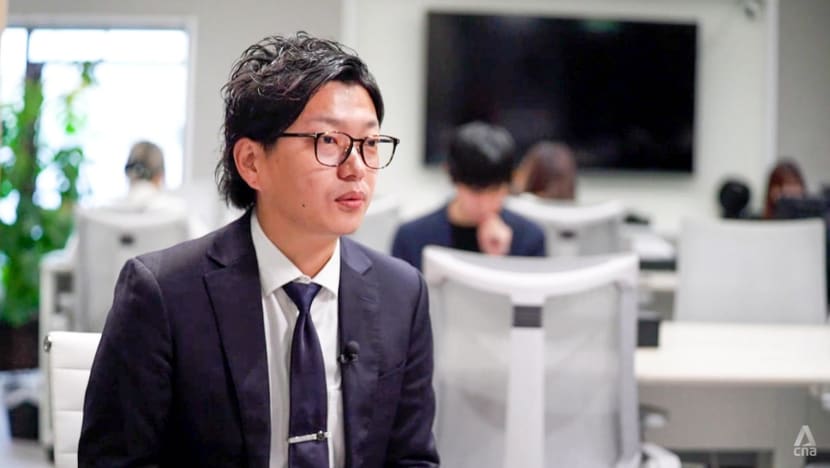
With employees tending to keep silent for fear of being judged, the country pays a price.
A Gallup study last year found that only 6 per cent of Japan’s workforce feel engaged at work, which is among the lowest in the world.
The disillusionment shows in the country’s labour productivity. According to the Japan Productivity Centre, the average Japanese worker’s productivity in 2023 was US$56.80 per hour, almost US$100 lower than in the top-ranked country, Ireland.
Gallup’s study found that low engagement cost Japanese companies over 86 trillion yen in 2023 (US$585 billion at current rates), which was close to 15 per cent of the country’s gross domestic product that year.
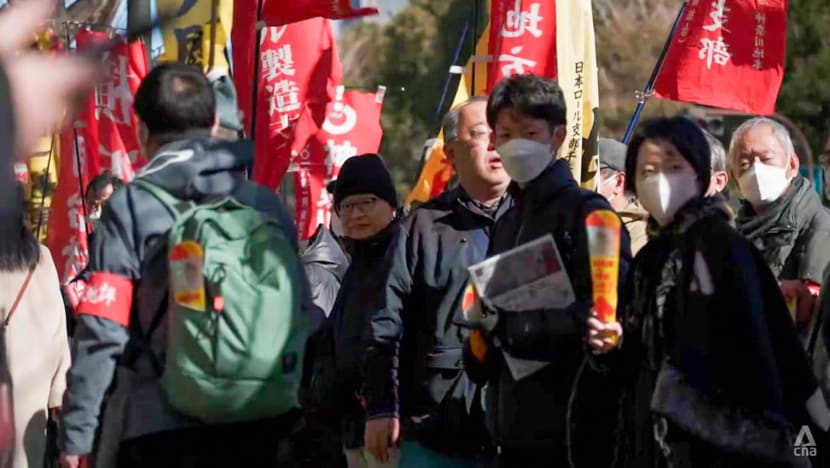
Can Japan’s work style reform reverse this? After all, studies have shown a positive correlation between work flexibility and worker engagement and productivity.
Ono thinks that “in the long run, it’ll be a better investment”.
SIGNS OF GRADUAL CHANGE
The latest reform starts this month as the Tokyo Metropolitan government introduces a four-day working week for its employees.
In the country’s private sector, however, only about 8 per cent of companies have allowed for the option since Japan’s government proposed such a model in 2021. Many businesses have even scaled back remote work since the pandemic ended.
Small and medium enterprises (SMEs) in particular, which comprise more than 99 per cent of Japan’s businesses, have struggled with staff shortages, low productivity and rising costs amid inflationary pressures and a weakening yen.
Last year, for the first time in 11 years, more than 10,000 companies filed for bankruptcy. Almost all of them were SMEs.
“There are many areas (in Japan) where the population is decreasing,” said Kobayashi. “So there are many companies that don’t have the flexibility to change the way they work.”
For ease of transition, SMEs have had some leeway in implementing the work style reform. Enforcement of the overtime cap, for example, started in April 2019 for large companies and a year later for SMEs.
It is also up to individual business owners to adopt measures such as flexible work arrangements. And some companies do experiment.
Nariaki Asano’s timber business, for instance, does not enforce fixed working hours. “If the work was planned (to last) for eight hours but wasn’t finished, we’d continue,” said the 75-year-old. “If we finished early, we’d call it a day.”
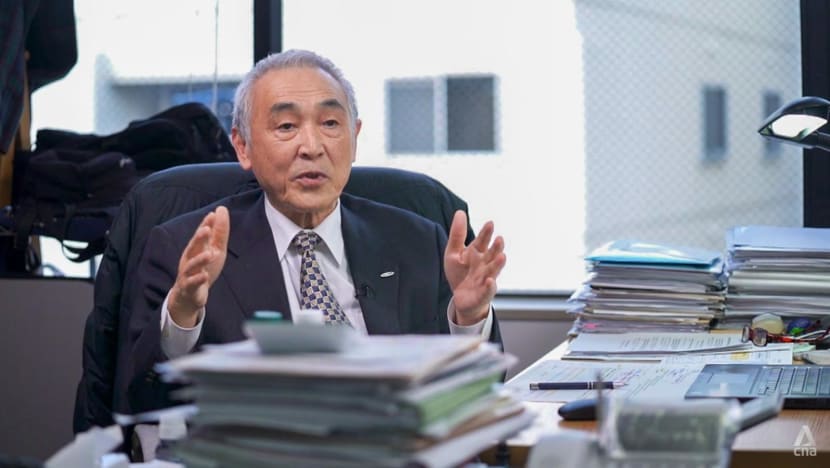
Despite all the challenges, Japan’s work style reform is making some progress.
Since the law was passed, the percentage of prefectural government employees who work more than 60 hours a week has dropped from 6.9 per cent to 5 per cent, a Ministry of Health, Labour and Welfare representative told Insight.
Also, 64 per cent of companies have said they are working to close the wage gap between regular and non-regular workers, he added.
Average monthly overtime, meanwhile, has decreased from 26.79 hours — before reform measures were phased in — to a low of 22.76 hours in 2023, according to job market platform OpenWork.
It is also young people who are driving change.
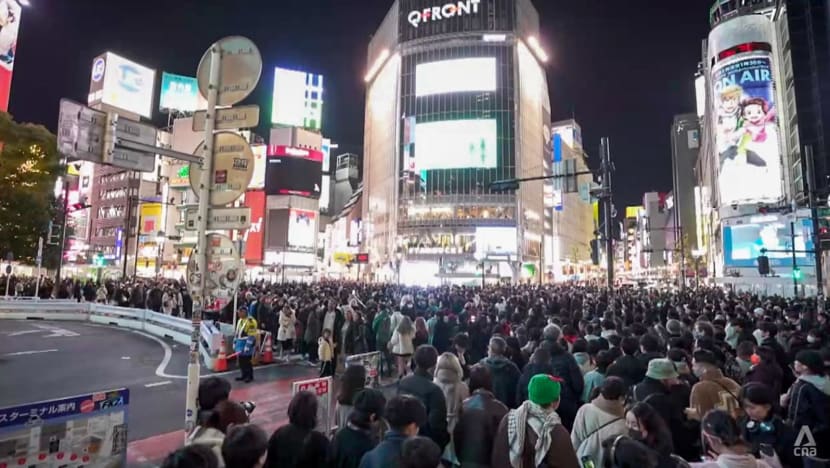
In an annual Tokyo Chamber of Commerce and Industry survey last year, 26.4 percent of young new employees said they would change jobs if given the chance, while 7.6 per cent of respondents planned to be self-employed in future.
The two figures combined have doubled since 2014. Conversely, fewer people than before intended to retire with their current employer.
“It’s become more important to focus on each individual’s career and life,” noted Kobayashi.
Kinetic artist Claire Fujita, for instance, chose to forgo traditional employment to pursue her passion after graduation. “I applied for, I think, five companies,” said the 33-year-old.
“Then I withdrew at the end of (one) final interview because I thought, ‘No, this isn’t for me.’ … I feel most alive when I’m making something, especially my own work.”
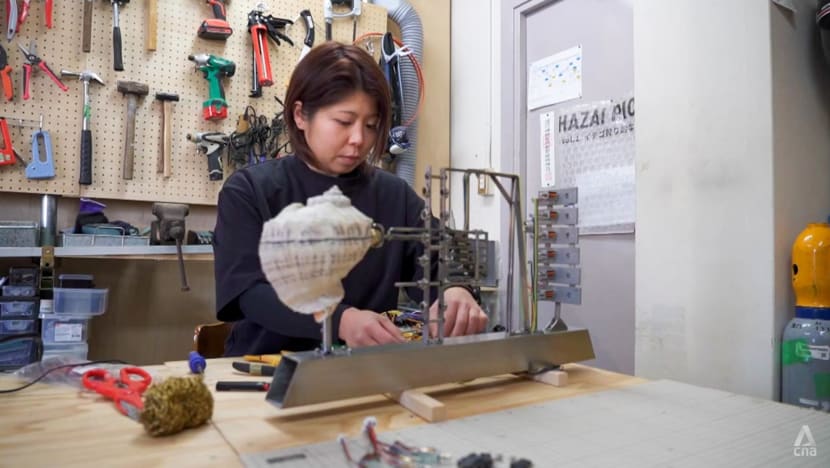
For many more young Japanese, the future of work includes reforms to encourage reskilling, facilitate labour mobility and shift more power from companies to workers.
“For a long time, Japanese organisations were very inflexible,” said Ono. “People are changing. We have a labour shortage problem. The organisations have to adapt to the people and not the other way around.”
Watch this episode of Insight here. The programme airs on Thursdays at 9pm.


















